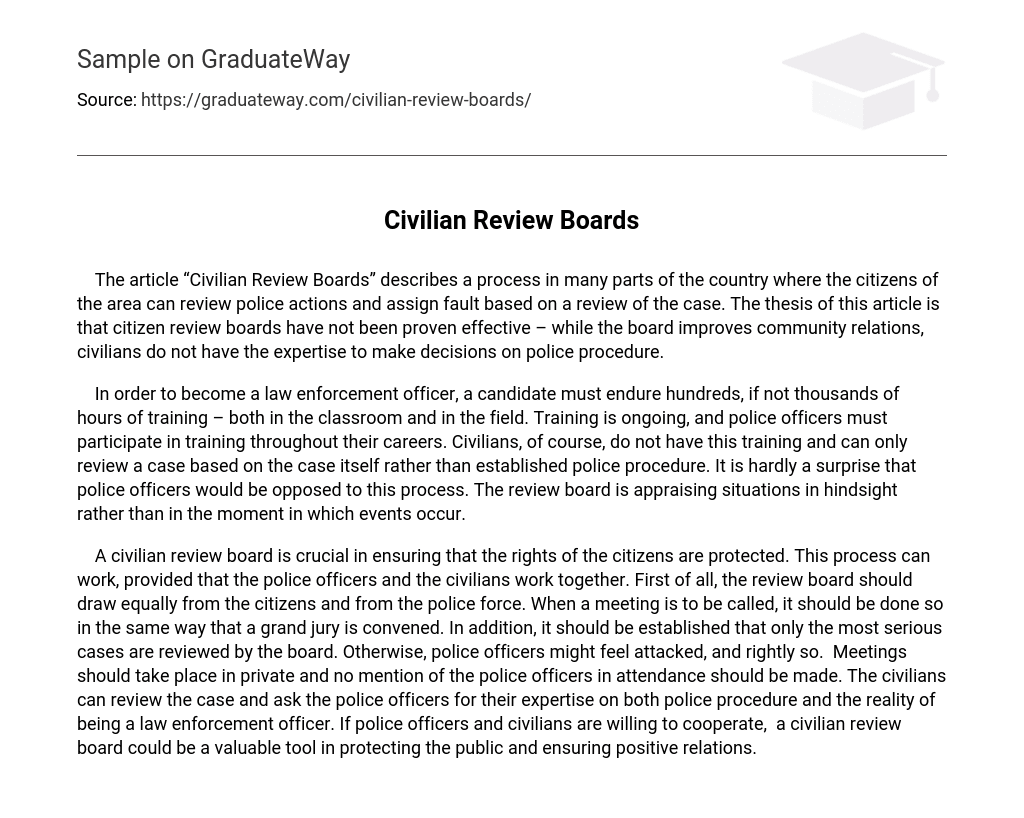The article “Civilian Review Boards” describes a process in many parts of the country where the citizens of the area can review police actions and assign fault based on a review of the case. The thesis of this article is that citizen review boards have not been proven effective – while the board improves community relations, civilians do not have the expertise to make decisions on police procedure.
In order to become a law enforcement officer, a candidate must endure hundreds, if not thousands of hours of training – both in the classroom and in the field. Training is ongoing, and police officers must participate in training throughout their careers. Civilians, of course, do not have this training and can only review a case based on the case itself rather than established police procedure. It is hardly a surprise that police officers would be opposed to this process. The review board is appraising situations in hindsight rather than in the moment in which events occur.
A civilian review board is crucial in ensuring that the rights of the citizens are protected. This process can work, provided that the police officers and the civilians work together. First of all, the review board should draw equally from the citizens and from the police force. When a meeting is to be called, it should be done so in the same way that a grand jury is convened. In addition, it should be established that only the most serious cases are reviewed by the board. Otherwise, police officers might feel attacked, and rightly so. Meetings should take place in private and no mention of the police officers in attendance should be made. The civilians can review the case and ask the police officers for their expertise on both police procedure and the reality of being a law enforcement officer. If police officers and civilians are willing to cooperate, a civilian review board could be a valuable tool in protecting the public and ensuring positive relations.





